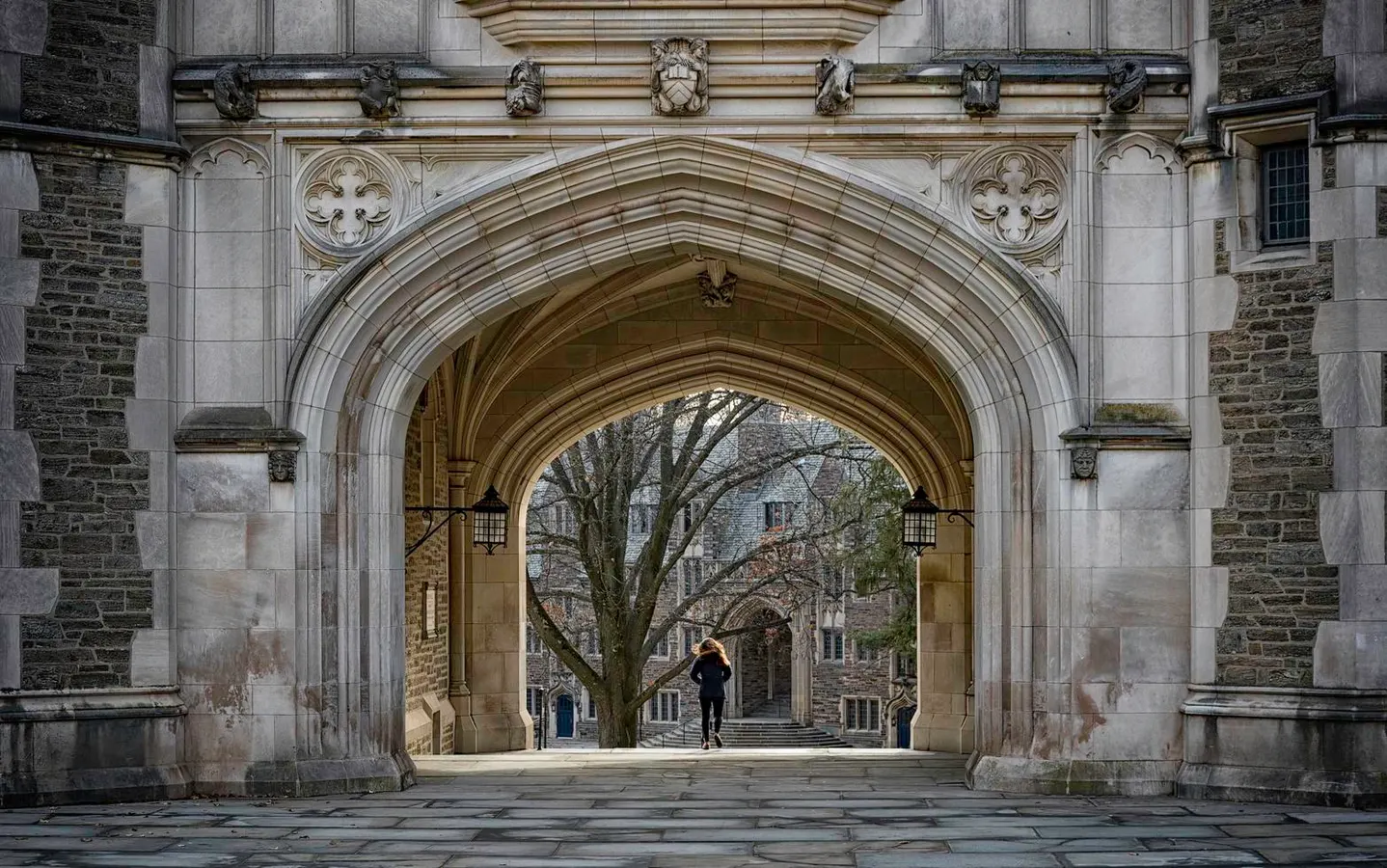By Contributor,Liz Doe Stone
Copyright forbes

Look closely at supplemental essays: they signal the traits that matter most in admissions today.
It’s back-to-school season, and high school seniors are deep in the thick of college essays, especially with early deadlines in November fast approaching. For today’s parents, the process looks almost unrecognizable compared to a generation ago. What was once a single personal statement has evolved into a complex portfolio of supplemental essays, each tailored to reflect an individual college’s values and priorities. To families, these additional essays can feel like one more hurdle. At the same time, they offer an important window into the traits and qualities admissions officers most want to see in future students.
For the 2025–26 cycle, colleges across the Ivy League, and peer institutions like Amherst College, Barnard College, and Vanderbilt University, are asking applicants to reflect on the communities that shaped them, the disagreements that tested their character, the experiences that bring them joy, and the purpose that drives them forward. Look closely, and a clear pattern emerges: the students who stand out are those who can demonstrate five essential traits: curiosity, connection, joy, resilience, and purpose.
Colleges are signaling, more than ever, that intellectual vitality matters. Brown University underscores this with its signature prompt: “Brown’s Open Curriculum allows students to explore broadly while also diving deeply into their academic pursuits. Tell us about any academic interests that excite you, and how you might pursue them at Brown.”
This year, Amherst College goes even further, making curiosity a central theme. One of its prompts quotes the college’s president, Michael A. Elliott: “Hope and curiosity — these are qualities that are the foundation of what Amherst College means… Curiosity is at the core of a liberal arts education.” Applicants are asked: “What does curiosity mean to you? How do you experience curiosity in your own life?”
What admissions officers are looking for here is not encyclopedic knowledge or a laundry list of classes. They want students who can show how their curiosity has been lived, through independent projects, summer research, community engagement, or even a quirky hobby or an obsession with a particular idea. Curiosity isn’t passive; it is a habit of mind that propels students forward.
MORE FOR YOU
Selective schools are also probing how applicants engage with others. Cornell University highlights this with its essay: “We all contribute to, and are influenced by, the communities that are meaningful to us. Share how you’ve been shaped by one of the communities you belong to.”
Barnard College takes the idea further, asking students to imagine a dialogue across difference: “Choose one woman—historical, fictional, contemporary, or personally significant—whose views differ from your own. Imagine a conversation with her. What would you discuss? How might her perspective challenge or shift your own?”
Boston College offers another angle, asking about traditions: “Boston College’s annual calendar is marked with both long-standing and newer traditions that help shape our community. Tell us about a meaningful tradition in your family or community. Why is it important to you, and how does it bring people together or strengthen the bonds of those who participate?”
These questions underscore a reality: colleges are not just building classes of individuals, they are building cultures. The most compelling essays show how belonging to a group has shaped a student’s identity — and how they, in turn, contributed to that community. Whether the example is a marching band, a synagogue youth group, or a robotics team, the lesson is the same: colleges value students who know how to give as well as receive.
In an era of rising student stress, colleges want reassurance that applicants know how to find balance. Princeton University asks directly: “What brings you joy?”
Brown echoes the theme with its own variation: “Brown students care deeply about their work and the world around them. Students find contentment, satisfaction, and meaning in daily interactions and major discoveries. Whether big or small, mundane or spectacular, tell us about something that brings you joy.” And Stanford University, while not using the same wording, poses a similar challenge: “Reflect on an idea or experience that makes you genuinely excited about learning.”
The answers that resonate most are those that feel authentic. For one student, joy might come from designing video games or playing jazz saxophone at night; for another, it might come from time spent in a community garden or mentoring younger peers. The specifics matter less than the sincerity.
Admissions officers know that students who can articulate what sustains them — and who understand the role of joy in their lives — will arrive on campus with the resilience to thrive.
Another theme running through this year’s prompts is resilience — particularly the ability to grow through disagreement or failure. Harvard University asks: “Describe a time when you strongly disagreed with someone about an idea or issue. How did you communicate or engage with this person? What did you learn from this experience?”
Amherst poses a similar challenge, quoting its own presidential priorities: “Tell us about a time that you engaged with a viewpoint different from your own. How did you enter that engagement, and what did you learn about yourself from it?”
Columbia University frames the idea in terms of campus dialogue: “Please describe a time when you did not agree with someone and discuss how you engaged with them and what you took away from the interaction.”
These prompts are not traps. They are tests of maturity. The strongest responses rarely celebrate victory in debate. Instead, they show openness to listening, a willingness to reflect, and the humility to grow. In an age of political and cultural polarization, colleges are signaling that the ability to navigate difference is a highly prized skill. Resilience today means not just enduring hardship, but adapting with empathy.
Finally, selective colleges are asking applicants to articulate their sense of purpose. Dartmouth College quotes activist Dolores Huerta: “We must use our lives to make the world a better place to live, not just to acquire things. This is what we are put on earth for.” Students are then asked: “In what ways do you hope to make – or are you already making – an impact? Why? How?”
Boston College taps the same theme in a different way with its Jesuit-inspired question: “If you could add a fourth ‘Be’ to our mission of ‘be attentive, be reflective, be loving,’ what would it be and why? How would this new value support your personal development and enrich the BC community?”
Yale University’s short essays also probe this area, asking: “Reflect on how your interests, values, and/or experiences have drawn you to Yale.”
In each case, the emphasis is on alignment between past action and future intention. Colleges want to admit students who see education as more than personal advancement — who connect their goals to service, leadership, and impact. Purpose, in this sense, is both vision and direction.
What These Prompts Reveal About Admissions in 2025
The specific questions may vary, but the underlying values are consistent. Across institutions, from Amherst to Stanford, from the Ivy League to Jesuit schools, colleges are emphasizing the same traits: curiosity, connection, joy, resilience, and purpose.
For families, the lesson is clear. Strong applications are not built on superficial prestige or last-minute resume padding. They are built over years, through lived experiences that foster these traits. A student who pursues an academic interest deeply, who invests in community meaningfully, who knows what sustains them, who grows from disagreement, and who articulates a clear sense of purpose will stand out not just in admissions, but in life.
The supplemental essay prompts released for 2025–26 make this explicit. They remind us that colleges are not just evaluating academic credentials, they are seeking multidimensional human beings who will contribute authentically, grow thoughtfully, and lead with purpose. For students and parents navigating the admissions journey, that is both a challenge and an opportunity.
Editorial StandardsReprints & Permissions



